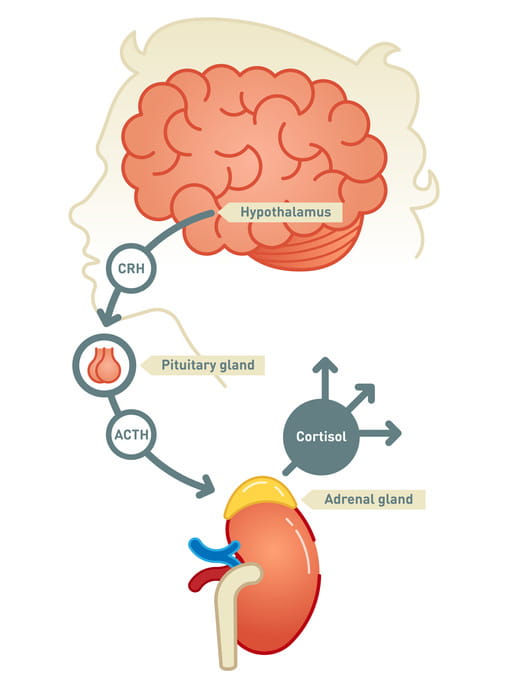What is Adrenal Insufficiency?
Adrenal insufficiency is a condition in which the adrenal glands (located on top of each kidney) are not able to make the right amount of important hormones.
These hormones include cortisol (kawr-tuh-sawl) and aldosterone (al-dos-tuh-rohn). They help keep blood pressure and blood sugar normal, as well as maintain salt and water balance. These hormones are important when the body needs to fight an infection or recover from surgery, a broken bone, or other illness.
Adrenal insufficiency can be life threatening if not treated properly.
Cause of Adrenal Insufficiency
Adrenal insufficiency can occur:
- When the adrenal glands are not working right due to a problem with the glands
- When the adrenal glands are not getting the right signal to make enough hormones
- As a result of long-term steroid use
Symptoms
Symptoms of adrenal insufficiency include:
- Nausea or vomiting
- Cold, clammy skin
- Fast heart beat or fast breathing
- Weakness, dizziness, paleness
- Confusion
- Dry mouth, thirst, decrease in urine (signs of dehydration)
Treatment
If the adrenal glands do not make enough cortisol on their own, medication must be taken (hydrocortisone or prednisone).
Children may need extra doses of steroid if they become sick. Parents will need instructions on when to give extra doses of medicine and how to give an injection in the muscle.
This video shows how to give a hydrocortisone injection.
When to Call the Doctor
Call your endocrinology provider if your child is ill and needs extra doses of steroid medicine.




